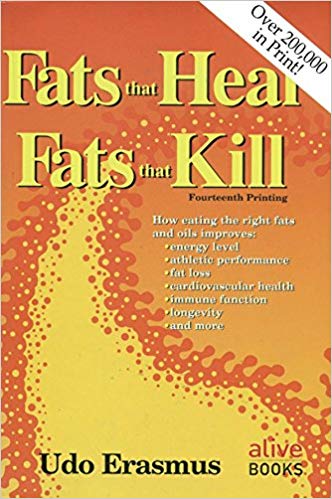By Ben Fuchs | Pharmacist Ben
A couple of weeks ago in a study that was published in the Journal of the American Medical Association (JAMA) and plastered all over the internet and the mainstream media, investigators found that that was correlation between prostate cancer and high levels of an essential fatty acid derivative called DHA.
Here’s my take:
 Fats are like women, they’re complicated! Highly complicated! Thus, to make sense of the nonsense associated with the incendiary headlines like: “Fish oil supplements linked to prostate cancer” (Health News) and “Men who take omega-3 supplements at 71 percent higher risk of prostate cancer” (NY Daily News) or “Omega-3 supplements may trigger prostate cancer” (Nursing Times) we have to digress slightly and talk about fats and fatty acid supplements.
Fats are like women, they’re complicated! Highly complicated! Thus, to make sense of the nonsense associated with the incendiary headlines like: “Fish oil supplements linked to prostate cancer” (Health News) and “Men who take omega-3 supplements at 71 percent higher risk of prostate cancer” (NY Daily News) or “Omega-3 supplements may trigger prostate cancer” (Nursing Times) we have to digress slightly and talk about fats and fatty acid supplements.
In the world of nutrition there’s different kinds fats (technically called “lipids”), classes of fats you might say. For example there are plant lipids like beta carotene and bioflavonoids, which are nutritional terms most people have heard of, and you’ll find fat soluble compounds like phytoestrogens and resins in vegetation as well as the fatty vitamins D, E,A and K.
Then there the fatty acids. There’s a bunch of them but two stand out in importance. And the reason they stand out is because they are “essential”. That means that along with amino acids and vitamins and minerals, these two very special types of acid made out of fat must be ingested on a regular basis at the risk of facing significant health challenges including the biggies: heart disease and cancer . They’re called essential fatty acids, we know them as Omega-3 and Omega-6 and by definition, they are absolute requirements in the human diet. You’re dead in the water without them and heading in the direction and degeneration and disease to the degree you’re deficient. Your brain is especially dependent on them as is the blood and circulatory system. Every single cell in the body contains appreciable amounts of EFAs, mostly omega-6s, except for the nervous system and the eyes which contain large amount of the omega-3 variety and their derivatives.
In the JAMA article what was noticed was a relationship between high blood levels of a specific breakdown product of Omega-3 called DHA and the incidence of prostate cancer. Now DHA is vital stuff. It’s an especially important part of the brain and eyes. In fact, right now, as you read this article, light from the page you’re looking at is hitting your eyes and activating the DHA embedded in the eye cell membranes, which in turn is causing chemical reactions that create the visual experience in your brain. The world we see is literally constructed out of DHA (at least partially) right now.
But here’s the catch: DHA is very active. What makes it so potent is its very activity. In the world of nutrition, activity is always associated with instability and from a health perspective instability is not necessarily a good thing. This is why oils are so problematic. They’re volatile and fragile. Remember we said fats are complicated. You need them but you have to be careful! This combination of instability and potency must be accounted for with balancing and protecting nutrients. In other words, you don’t want to ingest high levels of one fat with corresponding balancing FATS and balancing NUTRIENTS. For example you don’t want to be using Vitamin A without Vitamin D. And Vitamin E should to be stabilized with selenium, alpha lipoic acid Vitamin C. And when it comes to Omega 3 and omega 6 essential fatty acids EFAs, they need to be taken together and they need to be balanced with each other. Most nutritionists recommend 3 parts Omega-6 fatty acids for every one part Omega-3 fatty acids. And, all EFAs should always be taken with protective 400 i.u of Vitamin E. In the case of DHA, Omega-6s, Vitamin E and A and selenium all work together to shield this sensitive and vulnerable nutritional lipid. In the JAMA study, the only parameter that was measured was DHA levels. Were these patients using Vitamin E, selenium? We don’t know. How about Vitamin A and alpha lipoic acid? Again, we don’t know. How about balancing Omega 6’s and Omega 3’s? Once again, we don’t know. And, without this information, any causal conclusions drawn between this important fish oil component and development cancer must be considered dubious at best.
The most significant flaw the JAMA study was the fact that investigators examined patients who already had cancer! And, some of the men had a family history of prostate cancer, a known risk factor for carcinogenesis. This was a population of men who were prostate cancer cases waiting to happen. We don’t know if the existing cancer caused elevations in DHA or if it was that the DHA that resulted in the cancer. Or if there’s any correlation at all. In other words, the two factors (high plasma DHA and prostate cancer) may be completely UN-related.
Even worse, the tests were one-time-only each patient and measured only the blood plasma content of DHA. Plasma levels fluctuate and vary. A fish sandwich eaten an hour prior to a blood test would cause an elevated DHA score even if a patient had never eaten seafood or ingested fish oil before or since. That means that elevated DHA measurements merely provided a one-time picture of what was in the body, temporarily, at the moment the blood was drawn and in no way indicative of how much DHA a person was getting and storing! Of course, no one thought to check what these patients were eating, when they were eating it or what kind and how much DHA or fish oil supplements they were using. In fact, despite the alarming headlines no one knows if they were even using fish oil supplements at all!
Finally, a quick internet search will reveal numerous studies that associate fish oil and DHA with a decreased risk of cancer. In one for example, from Tuscia University in Italy, researchers concluded that: “DHA can exert antitumor activity” and can function as “an effective adjuvant in cancer chemotherapy”. In another study from the University of California at Davis researchers showed that “omega-3 dietary fatty acids (fish oil) reduce the risk of…cancers” although “the mechanisms by which these omega-3 lipids inhibit… (tumor formation)…are poorly understood”. And in yet another study, published in the International Journal of Clinical and Experimental Pathology in January of this year investigators found that “DHA inhibited (cancer) cell migration, a marker of metastasis and that stated that “DHA, a ω-3 fatty acid, could play a beneficial inhibition of the incidence and progress of a series of human including cancer (italics mine)”.
The bottom line and incontrovertible, undeniable fact remains that Omega-3 fatty acids are essential. That means they’re required for health and survival. There are NOT optional. And, while their instability and thus their potential for becoming degraded and perhaps unhealthy is equally undeniable, given their must-have nature, that simply means they must used with great care, with balancing nutrients and with as little heat and processing as possible. And any studies that suggest avoiding these vital substances need to be examined closely and in my opinion, with skepticism.


 And they’re very, very important, although they are not essential. Taking a nice daily dose of DHA and EPA is probably a good idea but certainly not in lieu of ALA, which is only found in a relatively few places, seeds like flax chia and hemp being the most well known sources. Now DHA and EPA, those are typically found in sea creatures. Until Krill, the only place to get DHA and EPA in a concentrated form was through fish oil or cod liver oil. (Interesting fact: snake oil contains high amounts of EPA and the old exaggerated claims that have it given it it’s pejorative idiomatic meaning probably derive from hyperbolic claims made for what is in actuality nothing more than a good nutritional supplement). And, because of the inherent instability of these molecules, fish oil wasn’t stable of nutritional supplements. There are lots of horror stories of fish oil and cod liver oil samples with elevated levels of free radicals an indication of rancidity, an oil gone bad.
And they’re very, very important, although they are not essential. Taking a nice daily dose of DHA and EPA is probably a good idea but certainly not in lieu of ALA, which is only found in a relatively few places, seeds like flax chia and hemp being the most well known sources. Now DHA and EPA, those are typically found in sea creatures. Until Krill, the only place to get DHA and EPA in a concentrated form was through fish oil or cod liver oil. (Interesting fact: snake oil contains high amounts of EPA and the old exaggerated claims that have it given it it’s pejorative idiomatic meaning probably derive from hyperbolic claims made for what is in actuality nothing more than a good nutritional supplement). And, because of the inherent instability of these molecules, fish oil wasn’t stable of nutritional supplements. There are lots of horror stories of fish oil and cod liver oil samples with elevated levels of free radicals an indication of rancidity, an oil gone bad.







